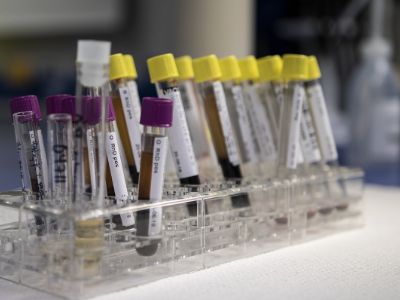
Ovarian cancer is a group of diseases that originates in the ovaries and related areas of the fallopian tubes and the peritoneum. The ovaries make female hormones and produce eggs for reproduction.
Ovarian cancer ranks fifth as the cause of cancer-related death in the United States. The malignant lesions of the ovary may originate from the ovary’s normal anatomy, or they may arise from cancers elsewhere in the body. An epithelial ovarian carcinoma is a common malignant lesion. Current research suggests that the majority of these originate from the fallopian tubes.
Symptoms of Ovarian cancer

- Vaginal bleeding or abnormal vaginal discharge
- Pain or pressure in the pelvic area.
- Abdominal and back pain.
- Bloating
- Feeling full too quickly
- Difficulty eating.
- More frequent or urgent need to urinate and constipation
There may also be:
- Indigestion and nausea
- Appetite loss
- Breathlessness
- Fatigue
- Weight loss
The symptoms can change if cancer spreads to other parts of the body. Visit your doctor as soon as possible when there is unusual pain and vaginal bleeding. They may be caused by something other than cancer, but the only way to know is to see a doctor.
Types of ovarian cancer
The ovaries are made up of three types of cells. Each cell can develop into a different type of tumor:
- Epithelial tumors. It forms in the layer of tissue on the outside of the ovaries.
- Stromal tumors. It grows in the hormone-producing cells.
- Germ cell tumors. It develops in the egg-producing cells. Germ cell tumors are uncommon.
Risk Factors of Ovarian Cancer
Causes and factors that increase the risk of ovarian cancer links to high levels of androgen or male hormones, dietary factors, and the use of talcum powder. Other factors include:
- Family history. A relative with a history of ovarian or breast cancer increases your risk of having the disease.
- Age. Women in their 60s are more at risk of having ovarian cancer.
- Reproductive history. The more pregnancies a woman has, the lower the risk seems to be. Breastfeeding may also lower the risk.
- Breast cancer. People with a history of breast cancer seem to have a higher chance of ovarian cancer due to changes in the BRCA gene.
- Hormone therapy. Undergoing hormone replacement therapy after menopause increases the risk of ovarian cancer.
- Obesity and overweight. Ovarian cancer is typical to overweight and obese women.
How to Diagnose Ovarian Cancer?

Your doctor will assess your symptoms and history. Recommended diagnostic process includes:
- Blood tests
- Imaging tests
- Laparoscopy
- Biopsy
Ovarian Cancer Treatment
Your doctor may recommend anti-androgen medications and other necessary treatment processes. These includes:
- Surgery
- Chemotherapy
- Targeted therapy
- Radiation therapy.
- Immunotherapy (biotherapy









